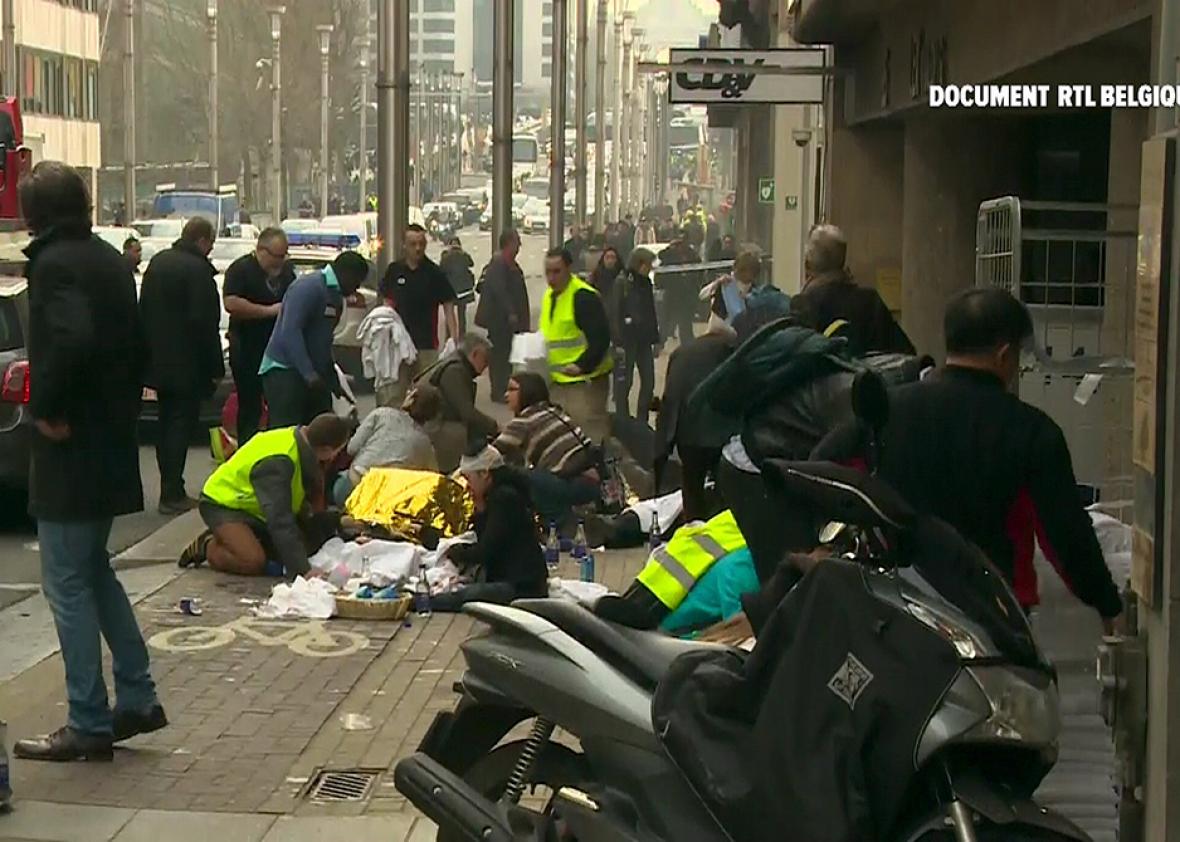With dozens dead following a series of three explosions in Brussels, a question that has come up with dispiriting frequency over the past two years has once again become relevant: Why does Belgium, the leafy land of chocolate and beer, seem to have such a disproportionately serious problem with terrorism?
Before Tuesday morning’s explosions, the country’s status as a hotbed for Islamic extremism was most recently on display in the wake of last year’s attacks in Paris, which were carried out by terrorists who had been living in the Molenbeek neighborhood of Brussels. Earlier this week, police in Brussels captured Salah Abdeslam, considered to be the last surviving participant in the Paris attacks, in that same neighborhood.
Belgium is also believed to have been the source of weapons used in the January 2015 Charlie Hebdo attacks. And before that, it was the site of a mass shooting in May 2014, when a gunman opened fire on the Jewish Museum in Brussels.
Meanwhile, young Muslims from Belgium have been pouring into Syria to fight in the civil war there; according to Belgian blogger and terrorism tracker Pieter van Ostaeyen, a total of about 560 Belgians have traveled to Syria and Iraq in order to fight as jihadis.
As my Slate colleague Josh Keating wrote last November, the apparent concentration of Islamic extremism in Belgium is largely the result of a group called Sharia4Belgium and its charismatic leader Fouad Belkacem. The group, which was founded in Antwerp and first gained attention by staging public commemorations of the 9/11 attacks, has capitalized on the high rates of poverty among Muslims in Belgium, as well as anger over widespread discrimination against Muslims and bans on Islamic veils that were passed in Antwerp in 2009 and at the national level in 2011.
Speaking to CNN for a recent article, the brother of two young men who left Belgium for Syria cited a sense of marginalization and a lack of opportunity as the main drivers of radicalization. “The Belgian state rejects children and young people,” he was quoted as saying. “They say, ‘They are all foreigners, why should we give them a job?’ They fill us with hate, and they say we aren’t of any use, so when young people see what’s going on over there [in Syria], they think ‘Well OK, let’s go there and be useful.’ ”
Though Sharia4Belgium was dealt a blow last February when 45 of its members, including Belkacem, were convicted for recruiting young people in Brussels and Antwerp to fight in Syria, it was believed at the time that much of what they had already built would remain in place.
No group has yet taken responsibility for Tuesday’s attacks. Follow Slate’s coverage of the developing situation here.
Read more of Slate’s coverage of the Brussels terror attacks.
